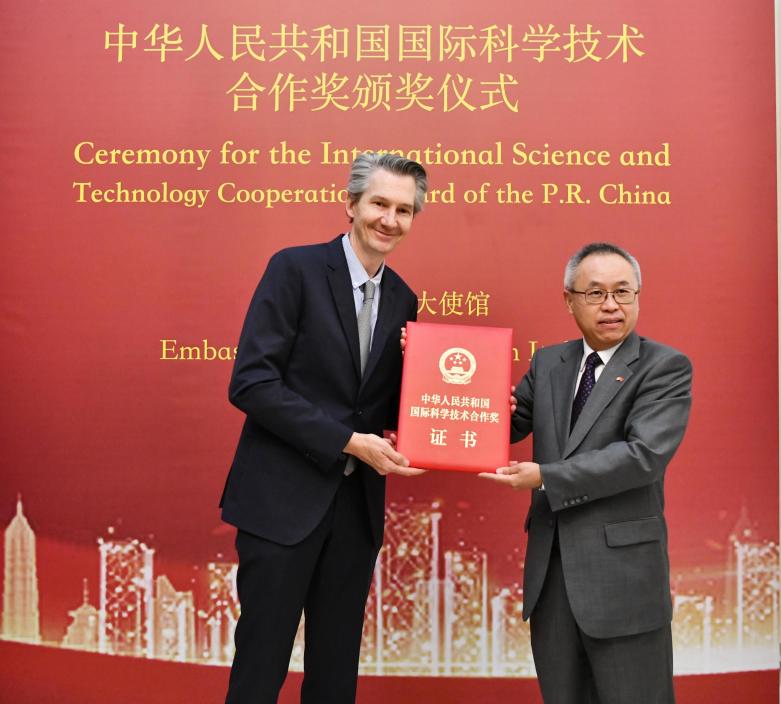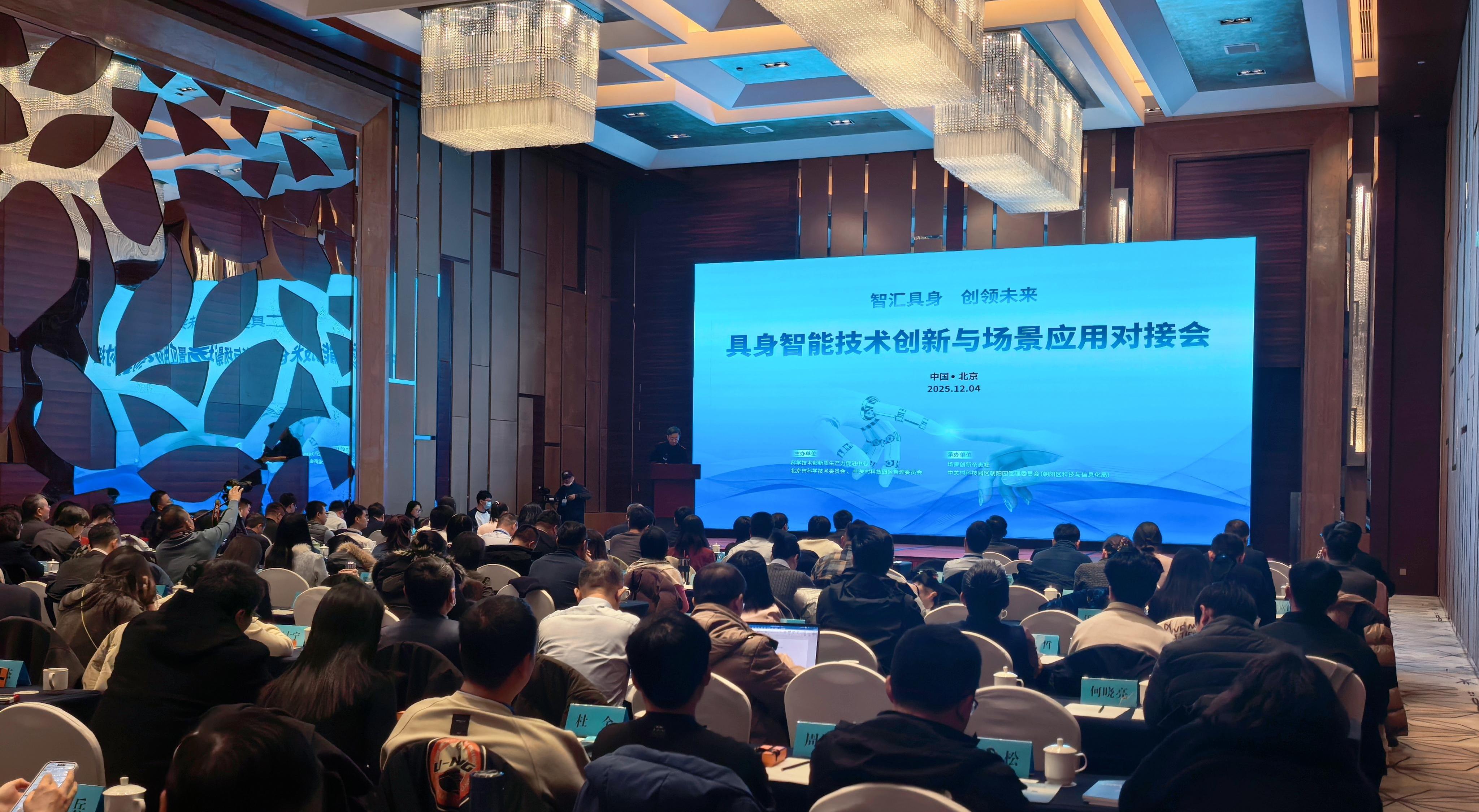China, CIAT Keep Fruitful Cooperation

Chinese Ambassador to Italy Li Junhua (R) presents the certificate to Juan Lucas Restrepo, director general of the Alliance of Bioversity International and International Center for Tropical Agriculture (CIAT), at the Chinese Embassy in Rome, on May 31, 2022.(PHOTO: The Chinese Embassy in Italy)
By LIU Jianzhou
Juan Lucas Restrepo, director-general of the Alliance of Bioversity International and the International Center for Tropical Agriculture (CIAT) in Rome, said that he is "extremely proud" of the accomplishments gained in numerous cooperative projects with Chinese partners, such as CATAS and other organizations. According to Restrepo, these projects have been implemented in diverse regions and have addressed a variety of study fields.
On May 31, the Chinese Embassy in Italy presented CIAT with the 2020 International Science and Technology Cooperation Award, the only organization to receive the award that year. According to Restrepo, this award will motivate them "To further strengthen our partnerships in the region, and will [motivate us to] push for greater technological and knowledge sharing amongst our institutions and contribute to global development goals. "
The Alliance of Bioversity International and CIAT have expanded their partnership with China to include South-South collaboration, such as establishing the Alliance Asia Pacific Center and promoting cassava cultivation in Southeast Asia and Africa. "Collaborating with China and with other South-South regional fora has allowed us to promote and sustain agricultural development in China and elsewhere," he said, adding that efforts toward further cooperation are progressing. Moreover, Restrepo said that President Xi Jinping's proposal for the Global Development Initiative in 2021 could, "Facilitate closer relationships with Chinese partners for an increase in knowledge and technology transfer in China and the region." Restrepo stressed that they are willing to be part of the practice for building a community with a shared future for mankind. "We are ready to be part of such a community, because it's the only way to address challenges. We really need to come together, and sometimes leave aside politics, ideology, etc., commit to very specific outcomes and targets that really allow us to face this enormous pressure the food system is getting," he said.
Nowadays, the majority of tropical agricultural countries are located in less developed regions. According to the World Bank, agricultural GDP growth is two to four times more effective in reducing poverty than growth in other sectors. He lauded China's accomplishment in utilizing agricultural science and technology for poverty reduction, adding that, "It can be an example to many countries that are taking a value chain approach to promote food system resilience and improve livelihoods for farmers."
In addition, he believes that, "Chinese research on tropical agriculture will prove to be instrumental in the future, as doubling investments in technology and innovation is the key to the transformation and development of food systems."
Established by China's State Council in 1994, the International Science and Technology Cooperation Award is a state-level annual award presented to foreign experts or organizations that have made significant contributions to the development of science and technology in China. In 2020, eight foreign experts and one international organization were recognized for their active engagement with Chinese scientists.







